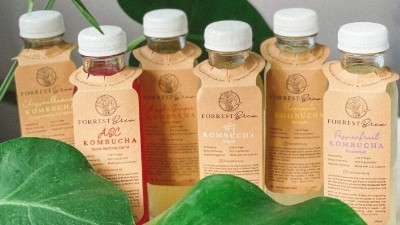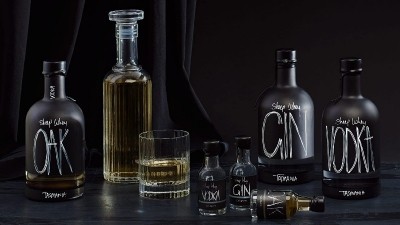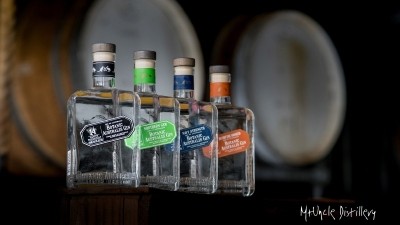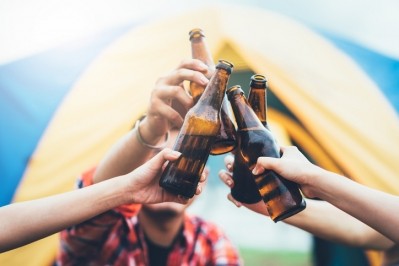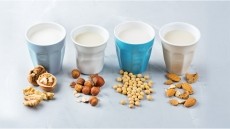‘Sneaky and Dirty’: Australian kombucha firm eyes alcohol drinkers seeking better-for-you options
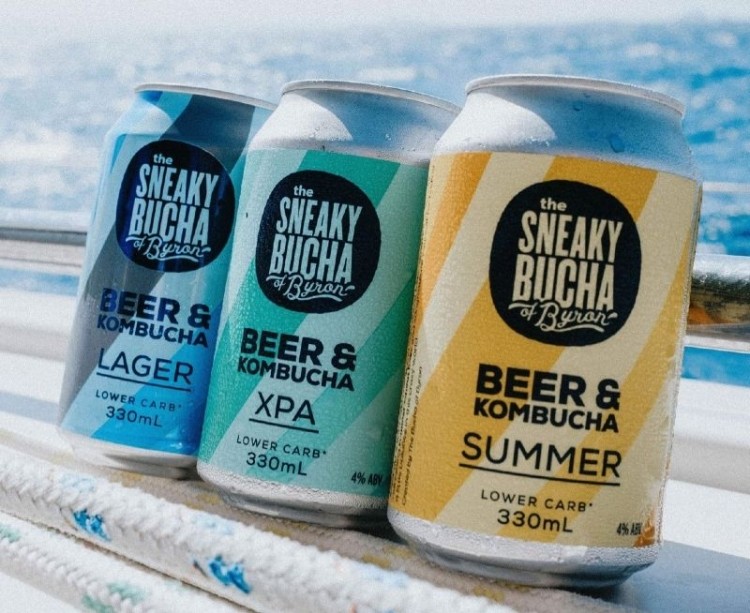
The firm’s core product is its regular Bucha of Byron kombucha, and it also has a line of kombucha blended with spirits called Dirty Bucha, and recently also launched a line of kombucha blended with beer dubbed Sneaky Bucha, all of which are ready-to-drink (RTD) products.
According to Bucha of Byron Co-Founder and General Manager Sales and Marketing Paul Tansley, the firm started off making regular kombucha in Australia’s Byron Bay initially but creating alcoholic variants had always been part of the plan.
“We started with non-alcoholic kombucha first with the idea of establishing the credibility of this as our core product first before leading into other alcoholic categories as we do use our non-alcoholic Bucha of Byron in making Dirty Bucha and Sneaky Bucha,” he told FoodNavigator-Asia.
“We wanted to be the first to lead in this niche space of alcoholic kombucha, and what we’ve done differently from others is primarily to look at the products as something of a cocktail, so mixing our kombucha with actual premium spirits or good quality beer, and not do alcoholic kombucha the conventional way which is usually to do second-stage fermentation.”
The firm’s clientele for the alcoholic kombuchas tends to be a mix of both healthier-product seekers looking for a spiked option, as well as alcohol-focused clients that are seeking out healthier options – ‘a bit of both’, according to Tansley.
“We’ve seen with Dirty Bucha that it tends to attract consumers who are already open to drinking RTD alcoholic drinks and spirits and also aware of the benefits of kombucha, and with Sneaky Bucha we’re still learning the market but it’s a world-first product and consumers love trying new stuff so that’s been working out,” he said.
“A lot of the non-alcoholic kombucha audience is in their 20s/30s, health-aware and looking for better-for-you options, and we’ve also found that it’s been the same for the alcoholic ones – not health freaks or anything, just those looking for a lower-sugar alternative compared to regular alcohol as there’s at least 25% less carbohydrates in our products.
“We’re not trying to convert teetotalers or anything like that, it’s more of focusing on moderation and offering consumers a healthier alternative – we definitely don’t say these are healthy due to the alcohol content, but they are better compared to regular alcohol.”
Tansley also reflected how the rising interest in both Dirty Bucha and Sneaky Bucha is really reflecting a change in both alcohol and beverage consumption trends – essentially a ‘blurring of lines’.
“One of the key trends these products are showing us is really a blurring of lines between traditional alcohol categories – it always used to be interest in just beer, just wine or just spirits, but now all this product innovation and blending has come into play, the dynamic of the industry is really changing,” he said.
Bucha of Byron’s regular kombucha range comprises five variants: Original, Lemon myrtle, Tropical, Ginger and Acai. These can be found all over Australia in Foodworks, independent supermarkets and prominent cafes and bars.
Its Dirty Bucha products use kombucha from this range blended with spirits, so Gin & Lemon Myrtle and Vodka & Tropical, whereas all Sneaky Bucha products use the Original kombucha blended with different beer styles (Summer, XPA or Lager) and are marketed according to the type of beer used. These are available in BWS and Dan Murphy stores nationwide.
Regulations and classification
At present, the firm’s regular non-alcoholic kombucha falls under the non-alcoholic category of regulations based on Food Standards Australia New Zealand standards, but Sneaky and Dirty Bucha fall firmly into the alcoholic category.
“We’re very careful with the regular kombucha to remain below 0.5% ABV, and with the Sneaky and Dirty Bucha to adhere to government standards for alcoholic beverages too,” said Tansley.
“There were challenges at first, some debate about how to treat the products due to the blending of two categories based on taxation and so on as we’re sort of a new category, blurring normal category conventions.
“But in the end the decision was to go under the alcoholic beverages category and abide by traditional category conventions from a regulatory point-of-view, so definitely we’re doing all the labelling requirements, following advertising standards and being careful about health claims.”
This is also the reason for a difference in pricing between Dirty Bucha (A$22 / US$17.08 per 4-pack of 330ml glass bottles) and Sneaky Bucha (A$18 / US$13.97 per 4-pack of 330ml cans), as higher taxes are levied on spirits compared to beers in Australia.
Expansion in progress
Tansley also revealed that the firm has some presence in Singapore via its non-alcoholic kombucha in foodservice outlets, and had been about to bring in Dirty Bucha and Sneaky Bucha when COVID-19 struck and everything had been to be put on hold.
“We also had plans to start trialling in Thailand, and possibly in Hong Kong and India, but the pandemic really has stalled many things,” he said.
“Singapore is still important to us though, as there is a big on-premise scene there that suits us and we want to capitalize on – in Australia we’re stronger on the supermarket end, but we want to build presence strongly on-premise too.
“Singapore also has a strong demand for healthier alternatives to soft drinks, or to alcohol and beer which is a gap we can fill. Hong Kong is much the same, whereas in Thailand there’s a really emerging craft scene which fits as well – so expansion is still something we’re looking at.”
